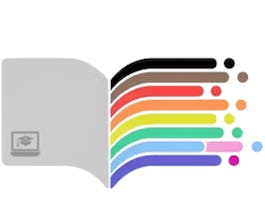As a teacher, are you wondering what you can say in class about race or racism or gender and sexuality? Are you feeling pushback in your own school or context or pressure to avoid topics that have been labeled as "divisive"? Are you curious about how to support all students in your classes and how to build trust with parents and families in more sustained and enduring ways? If so, this course is for you. This course supports teachers looking for tools to reach all students and families—– even as teachers’ and students’ rights are increasingly under threat and as topics such as identity, race, and gender have become increasingly contested in schools. This course strives to provide practical tips for teachers as well as guidance for collaboration and solidarity during these contentious times. We begin by defining concepts associated with inclusive teaching practices and culturally sustaining pedagogies.



Expérience recommandée
Ce que vous apprendrez
Apply inclusive concepts, and practices for teaching.
Learn about teachers’ rights/responsibilities.
Cultivate family/student relationships.
Compétences que vous acquerrez
- Catégorie : Family Partnerships
- Catégorie : Culturally Sustaining Pedagogy
- Catégorie : Teaching Method
- Catégorie : Educational Laws and Standards
Détails à connaître

Ajouter à votre profil LinkedIn
5 devoirs
Découvrez comment les employés des entreprises prestigieuses maîtrisent des compétences recherchées


Obtenez un certificat professionnel
Ajoutez cette qualification à votre profil LinkedIn ou à votre CV
Partagez-le sur les réseaux sociaux et dans votre évaluation de performance

Il y a 5 modules dans ce cours
In this module, you will become familiar with the overall structure of the course, as well as the requirements for pursuing the course certificate. In particular, the final assignment required for those wishing to pursue the certificate will be outlined as well as the overall organization of the course.
Inclus
2 vidéos4 lectures1 devoir1 sujet de discussion
In this module, you will become familiar with common vocabulary and ideas associated with culturally sustaining teaching practices. In addition, you will consider subconscious biases that we each bring into our own classroom spaces as educators. In this module, you will be invited to think reflectively about how to honor students and families’ backgrounds, to use cultural tools as a lens and to effectively address unconscious bias in a way that allows you to meet the needs of your students and educational environment.
Inclus
1 vidéo7 lectures1 devoir1 sujet de discussion
Educators and students alike are in a stressful teaching and learning climate. However, by practicing a culturally sustaining pedagogy that recognizes and honors student cultures, identities, and backgrounds, we can make the classroom environment warm and welcoming for all students. In this module, we define culturally sustaining pedagogies, we explore strategies and tools conducive to culturally sustaining approaches, and we consider how we might leverage such tools in our own teaching contexts.
Inclus
1 vidéo10 lectures1 devoir1 sujet de discussion
This module examines the history of rights and responsibilities for teachers at the state and federal level. Through examination, trends will be explored to show how education has been a key political agenda whenever lawmakers feel a threat to their agenda. Specifically, this module will showcase historical trends of anti-inclusive educational policies such as anti-bilingual and anti-ethnic studies from the 1990s - early 2000s. Then, this module will highlight the current trends of anti-CRT, anti-gay legislation, anti-SEL, and Book Bans nation wide. This module will conclude with modern activism from teachers and students as examples of how these current oppressive educational trends can be fought against and pushed back on while being mindful of teacher rights and responsibilities.
Inclus
1 vidéo10 lectures1 devoir1 sujet de discussion
In this module, we will explore the ways that teachers might forge relationships with family and community in order to advocate for and with students and their families as well as continue to offer Understand the value of students’ families and the role of communities in shaping school culture and landscapes.
Inclus
2 vidéos14 lectures1 devoir1 évaluation par les pairs1 sujet de discussion
Instructeurs


Offert par
Recommandé si vous êtes intéressé(e) par Education

University of Colorado System

University of Michigan

Johns Hopkins University

University of Virginia
Pour quelles raisons les étudiants sur Coursera nous choisissent-ils pour leur carrière ?





Ouvrez de nouvelles portes avec Coursera Plus
Accès illimité à 10,000+ cours de niveau international, projets pratiques et programmes de certification prêts à l'emploi - tous inclus dans votre abonnement.
Faites progresser votre carrière avec un diplôme en ligne
Obtenez un diplôme auprès d’universités de renommée mondiale - 100 % en ligne
Rejoignez plus de 3 400 entreprises mondiales qui ont choisi Coursera pour les affaires
Améliorez les compétences de vos employés pour exceller dans l’économie numérique
Foire Aux Questions
Access to lectures and assignments depends on your type of enrollment. If you take a course in audit mode, you will be able to see most course materials for free. To access graded assignments and to earn a Certificate, you will need to purchase the Certificate experience, during or after your audit. If you don't see the audit option:
The course may not offer an audit option. You can try a Free Trial instead, or apply for Financial Aid.
The course may offer 'Full Course, No Certificate' instead. This option lets you see all course materials, submit required assessments, and get a final grade. This also means that you will not be able to purchase a Certificate experience.
When you purchase a Certificate you get access to all course materials, including graded assignments. Upon completing the course, your electronic Certificate will be added to your Accomplishments page - from there, you can print your Certificate or add it to your LinkedIn profile. If you only want to read and view the course content, you can audit the course for free.
You will be eligible for a full refund until two weeks after your payment date, or (for courses that have just launched) until two weeks after the first session of the course begins, whichever is later. You cannot receive a refund once you’ve earned a Course Certificate, even if you complete the course within the two-week refund period. See our full refund policy.


